 | |
|
Ms. Trieu Thi Ha, owner of Thien Binh Preschool (Long Binh Ward), shared: “More than 10 years ago, I started investing in preschool education in the old Long Thanh town (now Long Thanh commune) when I realized the huge demand for childcare, especially for children under 3 years old. To date, my family has expanded to another facility in Long Binh Ward to serve the childcare needs of workers in industrial zones.”
Feel confident investing in education.
Located in the bustling residential area of Long Binh ward, the Thien Binh preschool, owned by Ms. Trieu Thi Ha's family, is quite spacious and well-equipped. Besides the children's activity rooms, there is also a swimming pool and a kitchen for preparing daily meals for the children. The childcare fee at Thien Binh preschool ranges from 1.5 to 1.8 million VND per month, which is affordable for parents who are factory workers renting accommodation in the industrial zones of Long Binh ward.
Ms. Ngo Kim Hue, a worker at Mabuchi Motor Co., Ltd. (located in Bien Hoa 2 Industrial Park, Tran Bien Ward), who is currently raising a child under 3 years old, said: "Currently, there are quite a few private preschools, making it easy for parents to choose one to send their child to based on their financial capabilities."
Meanwhile, Mr. Dinh Ngoc Tu, Chairman of the Board of Directors of Dinh Thuan Joint Stock Company, said: With over 15 years of investment in education, the company has developed a system of preschools, primary and secondary schools, and vocational schools in Tam Hiep ward, Long Thanh commune, and Trang Bom commune. Currently, the company is planning to open more primary and secondary education facilities when the State facilitates land procedures.
And then there's Mr. Le Xuan Tho, the Principal of the school.
Tran Dai Nghia Primary, Secondary, and High School (in Ho Nai ward) stated: The school is located in an area with many industrial zones and a large population. Meanwhile, public schools are overcrowded, especially since there is no public high school in the area, making student enrollment quite favorable. Currently, the school has over 6,000 students from grades 1 to 12. Because the majority of students are children of factory workers, the monthly tuition fee is quite low, only 1.2-1.5 million VND/month. Another reason many parents want to send their children to the school is its boarding model, which is convenient for parents to drop off and pick up their children.
More policies are needed to develop private education.
To date, the province's network of private schools, from preschool to university, has over 200 institutions, with a significant amount of private investment in the system of private schools from primary to university level. In addition to primary schools teaching the Ministry of Education and Training 's curriculum, Dong Nai has developed models of bilingual primary schools and primary schools teaching 100% international programs. Notably, the province currently has three private universities offering multi-disciplinary programs, some of which meet international accreditation standards, and several programs have achieved US educational standards.
Dong Nai will continue to focus on strongly attracting socialized education, thereby forming high-quality, internationally-standardized key schools from primary to university level. This is defined in the Resolution of the First Provincial Party Congress, term 2025-2030. The Department will continue to advise the province on issuing policies to ensure the rights of education investors; and at the same time create more favorable mechanisms and policies to encourage investors to invest more in education.
Provincial Party Committee member, Director of the Department of Education and Training , Truong Thi Kim Hue
According to the Department of Education and Training, compared to the national average, Dong Nai province has done well in the socialization of education. Before the merger of Binh Phuoc and Dong Nai provinces, Dong Nai was one of the top provinces nationwide in developing the socialization of education. The province's private schools attracted nearly 150,000 students, accounting for almost 20% of the province's total student population. The estimated percentage of students attending private schools in Dong Nai province was previously 20.6%, while the national average was only 6.68%. Furthermore, the province's private schools are sharing over 7,000 teaching positions with the provincial government. Thus, the province saves a considerable amount of money annually on teacher salaries, thereby reducing the burden on the budget.
The investor of a large private educational institution in Tran Bien ward stated: "The government is investing more in public education, such as waiving tuition fees, increasing teachers' salaries, and building more public schools... These are very sound policies, and parents and teachers are very happy. However, private investors in the education sector need to reconsider their strategies to ensure they are appropriate."
For example, when the government waives tuition fees for public schools, private schools will have to compete on service quality to retain students and parents. Similarly, while teachers in private schools used to earn significantly higher salaries than those in public schools, the situation is now becoming more balanced as the government has increased salaries for public school teachers. The private school system must reconsider the strategy of retaining teachers who leave to find work in public schools with increasingly better salary policies.
Ms. Pham Ngoc Ly, Principal of Bui Thi Xuan Primary, Secondary, and High School, believes that the government's support for public education is very appropriate and contributes to improving the quality of education in the country in the new era. In addition, the government needs to have a comprehensive support policy for the private education system, such as: partially subsidizing student tuition fees, providing additional support regarding corporate income tax, etc., so that non-public education can continue to develop more strongly.
Cong Nghia
Source: https://baodongnai.com.vn/xa-hoi/giao-duc/202510/thu-hut-nguon-luc-xa-hoi-hoa-giao-duc-chia-se-ap-luc-dau-tu-cung-ngan-sach-nha-nuoc-df93d8e/








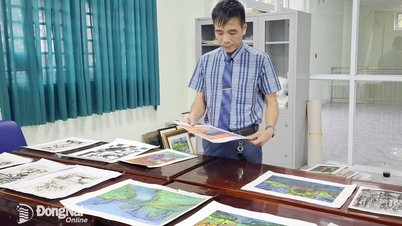






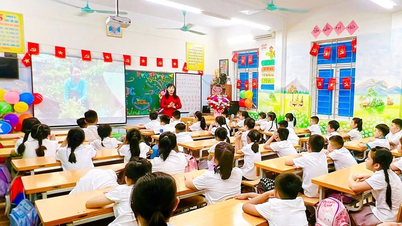


















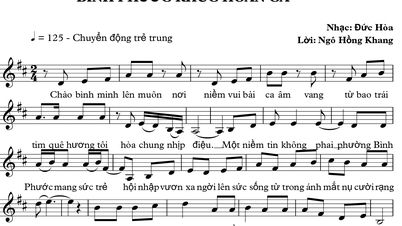
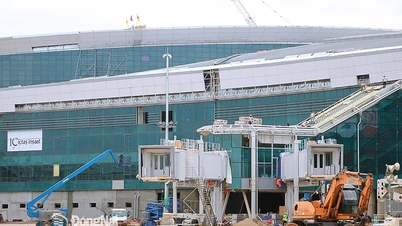




























































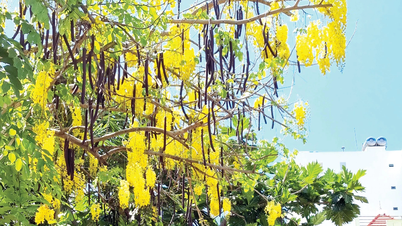



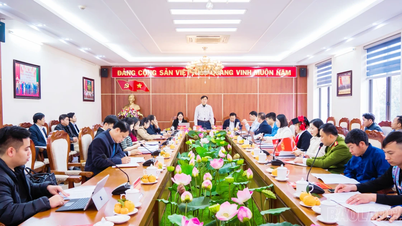













Comment (0)